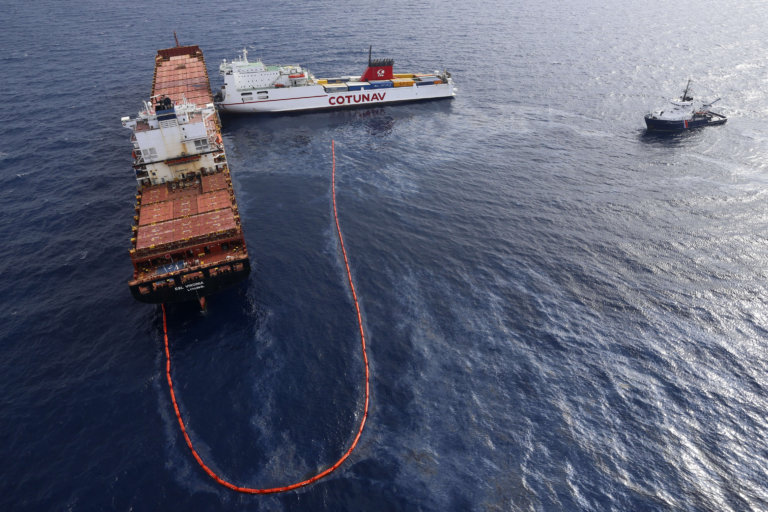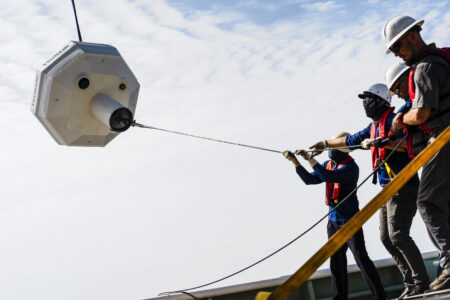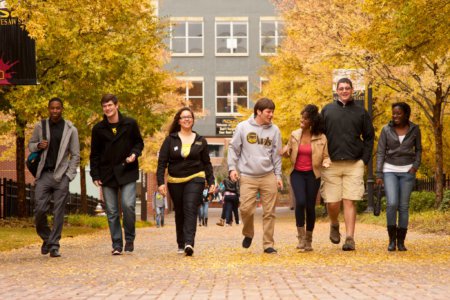
Coastal erosion. Pollution that is threatening our marine resources. Accelerating changes in the world’s climate, combined with modern practices including deep-sea mining and activities that result in increasing ocean noise and meeting global energy demands, are presenting professionals in the maritime industry with unprecedented challenges.
Without a doubt, the maritime landscape is shifting with the rising tides of technology. Advances in shipbuilding, propulsion, smart shipping, advanced materials, big data and analytics, robotics, sensors and communications in conjunction with an increasingly skilled workforce have monumental shifts in how the maritime industry approaches new challenges and opportunities.
There are many technical or non-technical careers in the field to cater to a wide range of interests and professional goals. Whether you have an interest in policy making regarding water management to getting your hands dirty as a marine engineer, whichever route you choose can offer a pathway towards an enthralling career in the shipping, coastal or water sector.
Here are four universities that will prepare you for a career in the maritime industry:
Klaipeda University – Faculty of Marine Technology and Natural Sciences

Source: Klaipeda University – Faculty of Marine Technology and Natural Sciences
Klaipeda University is located in the seaport city, which is an important transport hub, connected by international transport corridors, air, and water and railway lines with Scandinavian, CIS and other markets. As the only university that has their own fleet, Klaipeda University and the Faculty of Marine Technology and Natural Sciences is a world leader in education, research, and innovation for the maritime industries.
“We are an exceptional higher education institution with an exceptional mission – to explore the Baltic Sea and the whole region from various perspectives: natural, historical, and cultural,” says university rector Artūras Razbadauskas. “When it comes to exclusivity, it should be remembered that Klaipėda University is the only one that has its own fleet, which is both a learning base for students and a means of international scientific expeditions.”
Today, the university, located in the third largest city with the only seaport in Lithuania, is home to 3,000 students, taught by 550 teachers and researchers.
Have you ever looked at floating wind turbines, an oil platform or a fully loaded container ship and wondered how it works? At the bachelor’s in Informatics, Informatics engineering, Marine Transport Engineering, Shipping and Port Engineering, students learn all they need to know about activities both above and below the sea level — emphasising the use of innovative solutions such as computer technology, marine robotics, autonomy and materials technology.
Graduate students can also choose from master’s programmes such as Production Engineering, Innovative Electrical and Automation Systems and Shipping and Port Engineering, where they will be involved in tackling problems, mitigating impacts and managing resources of the marine ecosystem.
The university with partners from France, Greece, Romania, Spain and Croatia is a member of the European University for Smart Urban Coastal Sustainability (EU‐CONEXUS) alliance. Belonging to the European University means new opportunities both for students and academic staff: new inter-disciplinary and international study programs, new models of mobility, common virtual libraries, the idea of a smart university campus are going to be created, scientific research is to be strengthened.
To learn more about the unique study programmes that distinguish the faculty from other divisions of national universities, click here.
University of Plymouth

Source: University of Plymouth
At the University of Plymouth, graduates become leaders in technical and scientific fields — facilitated by the mastery of the foundations of knowledge through theoretical and experimental training.
Here, students are trained with a fleet of research vessels equipped with state-of-the-art instrumentation. Students can take their pick from undergraduate courses in Ocean Exploration and Surveying; Ocean Science and Marine Conservation; Oceanography and Coastal Processes; and Ocean Sciences with Foundation Year.
Through these programmes, students develop an expert understanding of how to protect and manage marine resources, learn to investigate alternative and innovative ways to establish and maintain sustainable fishing and aquaculture industries. Graduates who want to develop a specialisation can choose from masters programmes in Applied Marine Science; Marine Conservation; Hydrography; and Offshore Renewable Energy.
The MSc Offshore Renewable Energy programme, for instance, focuses on key emergent marine sectors: offshore wind, wave power and tidal power (both tidal barrages and tidal stream). It comprises expertise from engineering, marine science, economics, law and policy. From a state of the art wave and current test basin to a dedicated ocean-going research vessel to a wealth of computer laboratories and software, students will benefit from a range of facilities and resources to help their learning and development.
Marine technology students will find themselves dividing their time between the lab and the field. Source: Pascal Pochard-Casabianca / AFP
IHE Delft
At IHE Delft, students are taught to be critical, creative and independent thinkers who can connect and engage with a range of disciplines such as natural sciences, social sciences and engineering. The Institution provides a unique learning environment with research stations and laboratories to develop an expert understanding of how to protect and manage marine resources.

Source: IHE Delft
Combining a solid core knowledge of scientific principles with high-level skills in evolving technologies to address critical challenges facing marine and coastal ecosystems both now and in the future, graduates leave IHE Delft skilled for impact. Students can choose from postgraduate programmes in Water Management and Governance; Urban Water and Sanitation; Environmental Science; Water Science and Engineering; and Master of Science Programme in Sanitation. Alternatively, PhD Programme, Professional Diploma, and Short Courses are available too.
Their MSc Water Science and Engineering programme, for instance, focuses on the ability to develop infrastructure and gives knowledge on hydrological and hydraulic processes and modelling tools for improved water management in coastal zones, river basins and agricultural areas.
Students will benefit from opportunities to join research expeditions, work alongside passionate peers and knowledgeable lecturers, to enhance their skills and graduate job-ready. Guyanese alumna Crystal Conway said that her time at IHE Delft “taught me to build and do, and gave me more confidence. I returned home feeling more capable to do things”.
Roma Tre University

Source: Roma Tre University
Established in 1992, Roma Tre University is a dynamic, modern and international institution. The university is home to 33,225 students, supported by 12 departments offering a variety of bachelor degrees; master’s degrees; professional and specialisation courses; and PhD programmes.
Roma Tre’s Department of Engineering offers a bachelor’s in Engineering of Technologies for the Sea, preparing students for the field of industrial and mechanical engineering, with a focus on the marine environment. This course highlights industrial technologies for the exploitation of marine resources, protection of the coastal environment and the development of related infrastructures.
The university’s all-new two-year master’s programme in Sustainable Coastal and Ocean Engineering prepares modern civil engineers with advanced knowledge of the coastal and ocean environments. This programme emphasises the interdisciplinary nature of research and education on emerging themes related to coastal climate change, including sea-level rise and coastal storms, natural coastal hazards including tsunamis and hurricanes, marine renewable energy, and coastal ecology and sustainable communities.
*Some of the institutions featured in this article are commercial partners of Study International









